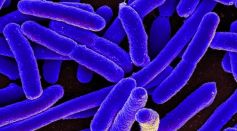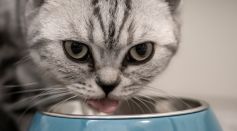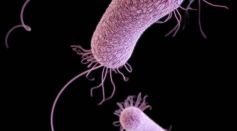Tags: Bacteria
Tongue Microorganisms Can Help Diagnose Heart Failure, Medical Experts Say
Deadly Amoeba Found: Texas Authorities Warn Summer Swimmers to Avoid Freshwater
Princeton Researchers Discover 'Poison Arrow' Antibiotic That Resists Immunity

Cyanobacteria In Water And On Land IS Said To Be A Source Of Methane

New E.coli Strain Developed to Consume Carbon Dioxide

Thanksgiving Leftover Guide To Avoid Spoiled Food

Cat Food Recalled Over Risks to Humans and Pets

Salmonela Found in Ground Beef Caused the Death of One Person, Eight Others were Hospitalized

Scientists Found a Way to Tackle a Superbug

The Grossest Hero of the Body: How Mucus Fights Bacteria

Self-Sterilizing Graphene Filter Effectively Eliminates Airborne Bacteria

Newly invented bacteria eats plastic
Drug-Resistant Bacteria May Be Nesting In The Washing Machine
How Bacteria Protect Themselves from Plasma Treatment
Understanding the Connections of Gut Bacteria to Human Health and Disease
Manuka Honey May Provide a Breakthrough Treatment for Cystic Fibrosis Infections
Human Immune System Initiates Due to Bacteria in Fermented Food
Dangerous Pathogens Utilize This Sophisticated Machinery to Infect Hosts
Marine Plastic Pollution Harms Bacteria That Help Us Breathe
Researchers Discovered Role of Bacteria in Recurrent Urinary Tract Infections
Most Popular

Ocean Acidification, Marine pH Change, and CO2 Absorption: How Coral Reef Damage and Shellfish and Plankton Impacts Threaten Marine Life

Dark Matter Explained: What We Know, What We Don't, and How It Shapes Cosmic Structure

Memory and Learning: How the Brain Stores, Retrieves, and Forgets Information

Solar Storm Risks: How Geomagnetic Storms Threaten Earth's Power Grids and Satellites





